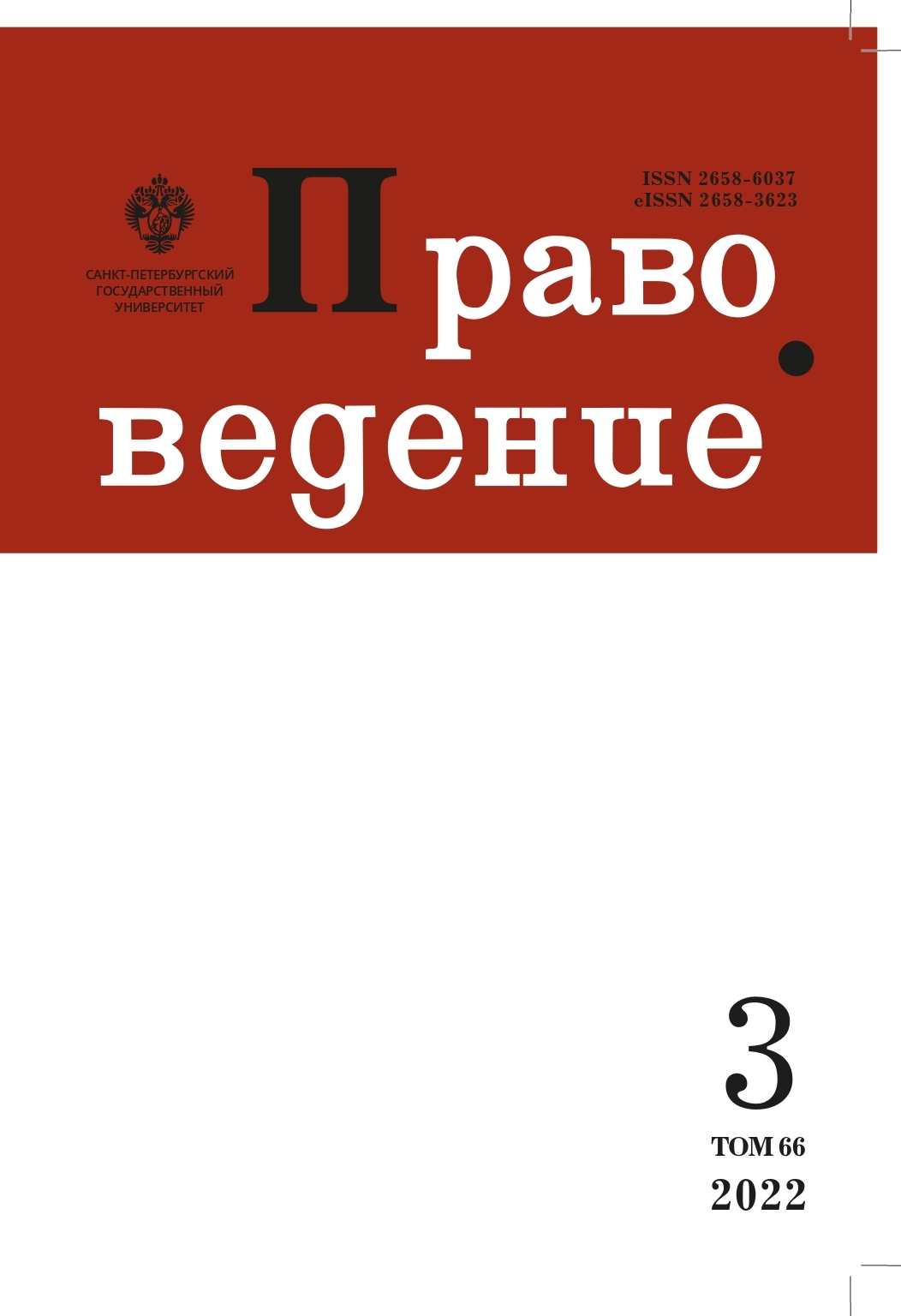Recent trend and issues in amending family law in Korea
DOI:
https://doi.org/10.21638/spbu25.2022.301Abstract
Civil law countries generally include family law in their respective civil codes. The Republic of Korea is not the exception under this aspect. The Korean Civil Code which was enacted in 1958 and came into force in 1960 is structured on the base of the Pandekten system. Based on it, Part IV of the Civil Code is the law on relatives. The Korean Civil Code since its coming into effect on January 1, 1960 has been amended twenty nine times, among which thirteen amendments concerned the revision of the law on relatives. Given that general reluctance to amend the Civil Code in Korea, the relative regularity of the revisions show how significant the changes were that took place regarding family relations in the Korean society. A study of the history of amendments show that the factors of amending family law are three-fold. First, family law was amended for the purpose of gradual evolution of the Code by shedding elements of premodern law found therein. The amendments of 1962, 1977, 1990 and 2005 took place due to such a factor. Second, there were those amendments that were the result of the Korean Constitutional Court’s decision that determined that particular provisions inheritance were either unconstitutional or non-conformable to the Constitution. Third, family law was also amended in order to reflect the urbanization, industrialization, ageing of the Korean society and the rise of individualism, thereby strengthening the institution of family and affording more protection to the weak within the family. The latest amendment was the result of the latter. Among other things, the article pays some attention to the family legislation of North Korea, its specific features and unique structural differences from both the law of the Republic of Korea and the civilian tradition in general.
Keywords:
family law, modernization of law, Civil Code, Constitutional court, law of the Republic of Korea
Downloads
References
Choi, Dal-Gon. 1991. A Reflection on and Prospects for Korean Family Law. Reflections on and Prospects for Korean Jurisprudence. Seoul, Bubmoonsa. (In Korean)
Kwak, Yoon-Jik. 1997. Inheritance Law. Seoul, Parkyongsa. (In Korean)
Myoung, Soon-Koo, Lee Je-Woo. 2009. Introduction to Russian Law. Seoul, Sechang Publications. (In Korean)
Shin, Young-Ho, Kim Sang-Hoon. 2018. Lectures on Family Law (3rd ed.). Seoul, Sechang Publication. (In Korean)
Shin, Young-Ho. 1997. Guardianship in an Aging Society. Journal of Family Law 11: 365–369. (In Korean)
Shin, Young-Ho. 2003. A Review for Enhancing Provisions on the ‘head of family and family’. Journal of Family Law 17 (1): 30. (In Korean)
Song, Duk-Soo. 2017. The Law on Relatives and the Law of Inheritance (3rd ed.). Seoul, Parkyongsa. (In Korean)
Yoon, Jin-Soo (editor in chief). 2015. Commentaries on the Law on Relatives. Vol. 1. Seoul, Parkyoungsa. (In Korean)
Yoon, Jin-Soo. 2018. Lectures on the Law on Relatives and the Law of Inheritance (2nd ed.). Seoul, Parkyongsa. (In Korean)
Downloads
Published
How to Cite
Issue
Section
License
Articles of "Pravovedenie" are open access distributed under the terms of the License Agreement with Saint Petersburg State University, which permits to the authors unrestricted distribution and self-archiving free of charge.




